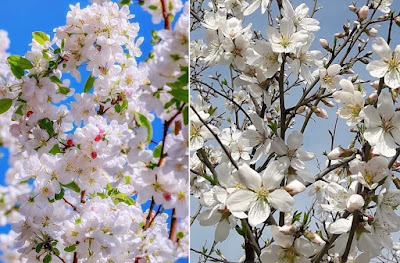 |
| Herbal teas of Kashmir Himalaya |
Herbal teas are teas made from plants, seeds, flowers, roots or fruits of all plants except Camellia sinensis (lipton/Kashmiri). They have been used as natural home remedies for thousands hundreds and thousands of years.
Benefits of herbal teas
With thousands of herbal teas come thousands of different flavors and benefits. Some herbs may taste better in blends, some are delicious on its own. Some cause no known side effects, while others should be taken only under the professional supervision. If you decide to use herbs for any health condition, even the minor ones, with herbal remedies, always consult your doctor.
Herbal blends should be steeped for 5+ minutes at a temperature of 212°F or 100°C.
Herbal blends typically contain a variety of plant herbs, spices, flowers, roots, berries, and barks, while tisanes are typically infusions of just dried fruits and berries.
DO HERBAL BLENDS CONTAIN CAFFEINE?
Herbal blends do not typically contain any caffeine (because there is no camellia synensis in herbal blends), although they may contain stimulating herbals such as yerba mate. It is important to always check the ingredient listing, and if in doubt about if it is safe for your consumption, consult professional medical advice.
Here is the list of the 22 most popular herbal teas around the world.
S.No. List of Herb
1. Rosmarinus officinalis- Rosemary tea
2. Quince leaf tea
3. Lemon balm-Melissa officinalis tea
4. Althaea officinalis- marsh mallow
5. Olive tea
6. Sea bukhthorn tea
7. Ginkgo biloba tea
8. Valerin tea
9. Lavender tea
10. Nettle tea
11. Cichorium Intybus `
12. Burdock tea
13. Dandelion tea
14. St John’s wort
15. Sage tea-Salvia officinalis
16. German chamomile tea
17. Saffron-Crocus st. Kesar
18. Persimmon leaf tea
19. Gojiberry leaf tea
20. Echinacea tea-(E. angustifolia, E. purpurea)
21. Ginkgo herbal tea
22. Howthorn tea
Simple Loose Leaf was started in 2015 by three siblings and we run it together to this day. We started this journey to help make loose leaf tea more approachable and fun. We offer 20+ different loose herbal leaf teas that can be experienced in our sample subscriptions, gift tea memberships, samples, or our 1 gram..
Regardless of how you enjoy loose leaf tea, we'll have an option you'll love.
If you have questions, contact Simple Loose Leaf Tea Company's Customer Support at jkmpic@gmail.com or WhatsApp us at 9858986794
list of herbal teas and their medicinal uses,
herbal tea benefits,
herbal tea price,
is herbal tea bad for you,
herbal tea for weight loss,
herbal tea,
tea remedies,
tea benefits,healing tea,
Ayurveda resorts in india, herbalresorts in Kashmir,
Ayurveda resorts in kerala,bestayurvedic retreat in india,
best ayurvedic healing centres inindia,
ayurvedic resort,
best ayurvedic resort,wellness resortsin india, wellness retreats in india
https://ginkgohouse.blogspot.com
herbal tea benefits,
herbal tea price,
is herbal tea bad for you,
herbal tea for weight loss,
herbal tea,
tea remedies,
tea benefits,healing tea,
Ayurveda resorts in india, herbalresorts in Kashmir,
Ayurveda resorts in kerala,bestayurvedic retreat in india,
best ayurvedic healing centres inindia,
ayurvedic resort,
best ayurvedic resort,wellness resortsin india, wellness retreats in india
https://ginkgohouse.blogspot.com



